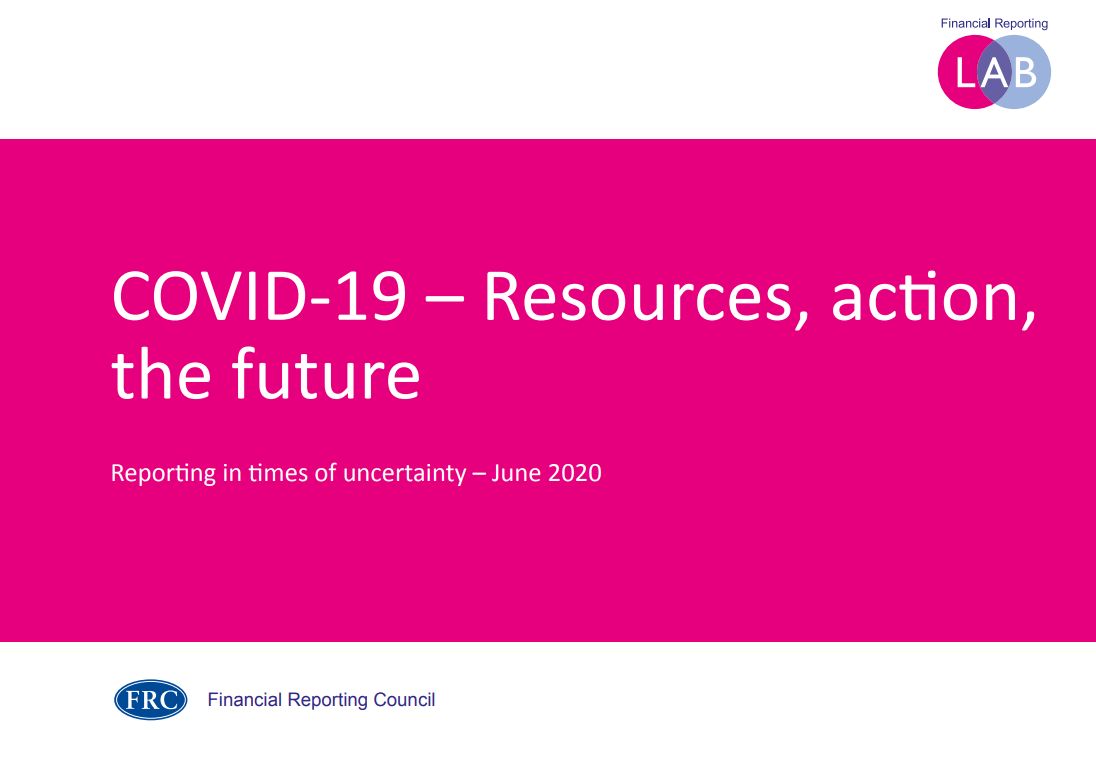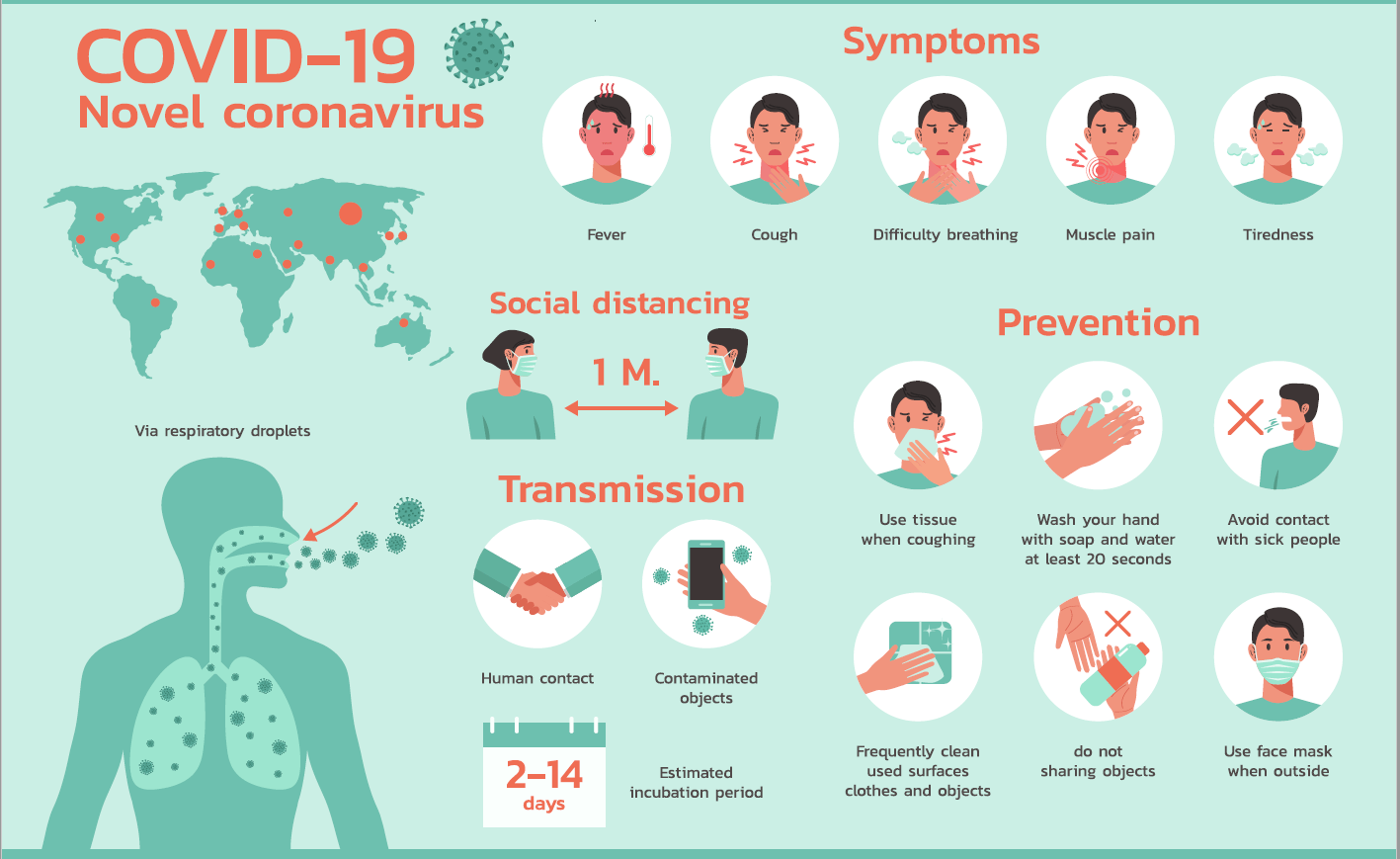
by John McCarthy Consulting Ltd. | Jun 15, 2020 | Blog
In May 2020, the EU Commission predicted that Irish GDP will contract by 7.9% in 2020, as a result of the Coronavirus (COVID-19). The good news is that it has predicted a bounce back of 6.1% in 2021.
In this climate, the provision of accurate financial information will be critical in getting Ireland back to health. Where can we find good, up to the minute guidance on this topic?
The hidden jewel in the crown of the Financial Reporting Council, the Financial Reporting Lab, has, once again, justified this title. On 15 June 2020, the Lab published two documents that give clear incisive guidance, with real life examples, dealing with:
- ‘Resources, actions and the future’ – practical advice to companies setting out the disclosures investors expect to see from companies during this time of uncertainty
- ‘Going concern, risk and viability’ – which gives guidance on going concern, risk and viability disclosures.
This week we focus on the Resources, actions and the future document that helps Directors and others with how to address three key topics in their annual reports:
- Resources – including the availability of cash.
- Actions – to manage short-term expenditure and ensure viability.
- The future – how the decisions taken now ensure the sustainability of the company and impact customers, suppliers and employees.
Covid-19 disclosures
If you would like to more examples of recent Coronavirus (COVID-19) disclosures in financial statements, see our recently published survey of 22 public company financial statements which highlight Coronavirus (COVID-19) disclosures.
The types of disclosures addressed in our report include topics such as:
- Emphasis of Matter
- Key Audit Matters in Audit Reports
- Going Concern/Viability
- Post Balance Sheet Events/Subsequent Events
This thirty-page report, is available on our website, and includes extracts from the types of disclosures that are prevalent at the moment. All this research, saving you time, is available to purchase for just €125+VAT, for immediate download.
For more on the Coronavirus (COVID-19) disclosures, please see our published report on our website here.
In our Publications Store, you will also find many complementary letters of representation templates that deal with the Coronavirus (COVID-19).

by John McCarthy Consulting Ltd. | Jun 2, 2020 | Blog
We have recently published a survey of 22 public company financial statements focusing on their Coronavirus (COVID-19) disclosures.
Of those companies surveyed, the John Lewis Partnership plc had some of the greatest level of going concern discussion in the notes to the financial statements, with a prominent note under the ‘Basis of Preparation’ section on page 95.
Our thirty-page report, is available on our website, and includes more detail of the types of disclosures that are prevalent at the moment and elaborates on the topics below. All this research is available to purchase for just €125+VAT, for immediate download.
The various disclosures in the report cover topics such as:
• Emphasis of Matter
• Key Audit Matters in Audit Reports
• Going Concern/Viability
• Post Balance Sheet Events/Subsequent Events
For more on the Coronavirus (COVID-19) disclosures, please see our published report on our website here.
In our Publications Store, you will find many complementary products that deal with the Coronavirus (COVID-19), especially letters of representation that seek written representations from the management of relevant entities about their preparedness for the future impact of the virus on their organisations.

by John McCarthy Consulting Ltd. | May 26, 2020 | Blog
Last week we highlighted in our published survey of 22 public company financial statements an example of an Emphasis of Matter audit report.
This week, our blog focuses on an extract from the Irish company Grafton plc (in its 31 December 2019 financial statements) which describes the risk: ‘The Group is exposed to the impact of the recent outbreak of the (COVID-19) virus epidemic in the countries where it operates and also in countries where some of its suppliers are based’.
This thirty-page report, just published on our website, is available to purchase for €125+VAT, for immediate download.
The various disclosures in the report cover topics such as:
• Emphasis of Matter
• Key Audit Matters in Audit Reports
• Going Concern/Viability
• Post Balance Sheet Events/Subsequent Events
For more on this topic please see our published report on our website here.
In our Publications Store, you will find many complimentary product that deal with the Coronavirus (COVID-19), especially letters of representation that seek written representations from the management of relevant entities about their preparedness for the future impact of the virus on their organisations.

by John McCarthy Consulting Ltd. | May 20, 2020 | Blog
Coronavirus (COVID-19) disclosures in published financial statements
In our published survey of 22 public company financial statements we highlight several useful examples of disclosure that company directors, auditors, accountants and financial controllers will find of relevance, in the midst of the Coronavirus (COVID-19) pandemic.
This thirty-page report, just published on our website, is available to purchase for €125+VAT, for immediate download.
The various disclosures in the report cover topics such as:
• Emphasis of Matter
• Key Audit Matters in Audit Reports
• Going Concern/Viability
• Post Balance Sheet Events/Subsequent Events
The company with the Emphasis of Matter audit report was Martin Currie Global Portfolio Trust plc (a company that invests in alternative investment instruments) with a 31 January 2020 year end. Its financial statements were signed off by the auditors on 9 April 2020. Note 18 to the accounts states that since the period end up to 7 April 2020, the company’s net assets fell by 6.8%.
For more on this topic please see our published report on our website here.here.

by John McCarthy Consulting Ltd. | Apr 20, 2020 | Blog, News
Cybercrime is not without victims and is taken extremely seriously by law enforcement.
Teenagers can drift into cyber-crime without realising the seriousness of their actions. In a timely video message from the UK National Crime Agency (NCA), parents are warned about the crimes teenagers can get involved in, especially during COVID-19 confinement.
The NCA have put together a series of online resources aimed at students/parents/guardians/carers and teachers. Coding, programming and computing are great skills to learn, but only if used safely.
The Garda Síochána have similar resources available at the Garda National Cyber Crime Bureau (GNCCB) website.
The Garda site also includes advice on the most common forms of money laundering during this Coronavirus era such as ransomware, spoof bank websites, Investment scams and CEO fraud, among several others.
Now is a good time to tighten up your AML procedures. For our latest 2020 Anti-Money Laundering Policies & Procedures Manual (retails for €150+VAT) see our online store here.
The Manual contains everything you need to successfully implement the requirements of the Criminal Justice (Money Laundering and Terrorist Financing) Acts, 2010 to 2018 and the Register of Beneficial Ownership.
Comes with a, free of charge, Excel spreadsheet called the ‘AML Control Sheet’ which firms may use to give a ‘helicopter’ view of progress made with keeping client AML data up to date.
Catch up on your AML CPD training here with webinars (all at €45 each and available on demand) on various AML topics like:

by John McCarthy Consulting Ltd. | Mar 31, 2020 | Blog, News
Following the announcement by the Taoiseach, on the 27th March, all non-essential workers must stay at home and only travel for work if absolutely necessary. This means disruption to 31st March stocktake attendance by auditors.
It’s unclear how popular a 31st March period end is in Ireland. It tends to be more popular in the UK, due to its proximity to the end of the income tax year of 5 April, so UK auditors may have bigger headaches with this issue than Irish auditors.
However, if stocktake attendance does not affect you right now, it will inevitably affect stocktakes in the months to come, so be prepared and plan ahead.
Even if you can justify attendance at the stocktake as ‘essential’ work, there are likely to be problems as client staff struggle to get prepared on time to make the stocktake as effective as it usually is under ‘normal’ conditions, along with other logistical problems.
What can be done?
Let’s see what the standards say.
‘ISA (UK) 501 Audit Evidence – Specific Considerations for Selected Items’ requires the auditor to attend a stock take where stock is material. Paragraph 6 says:
‘If the auditor is unable to attend physical inventory counting due to unforeseen circumstances, the auditor shall make or observe some physical counts on an alternative date and perform audit procedures on intervening transactions.’
This presents a few different options for auditors to consider:
1.The client could consider extending their accounting period to later in the year, to say 30 June 2020 (assuming they have not already extended their accounting period in the last 5 years). This could be a once-off change, as the period could be shortened again back to 31 March 2021.
2. Keep the 31 March date, but rather than attending the stock count at the year end date, a stock count is performed later in the year and the numbers rolled back. The rolling back process involves additional procedures that must be carried out to obtain evidence about the movements between the count date and the year end. This is similar to the exercise that must happen whenever an auditor is appointed to a new audit client (that holds stocks) after the client’s period-end has passed. The roll-back is especially important where the client wants to help avoid a scope limitation modification in their audit report (e.g. to avoid breaching a bank covenant).
Perpetual stock systems with strong controls in place obviously make performing such procedures much easier. If the client is closed due to the coronavirus outbreak, the rollback procedures should be pretty easy, as there should be minimal inventory movement.
3. Where accompanying roll-back procedures cannot be performed at the post year-end stocktake, because the client’s records are unable to provide sufficient evidence over the existence of stock as at the year end, a qualified opinion is much more likely to arise from a limitation of scope.
This may present added difficulties as there may be implications under the Companies Act, 2014, to do with whether the company has maintained ‘adequate accounting records’ (stock records) under Section 282 Companies Act, 2014, thus triggering an additional audit qualification on this topic, and additional reporting to the ODCE under Section 286 Companies Act, 2014.
4. Depending on the nature of the client’s stock and whether anybody is actually working at the warehouse, the use of video calling (e.g. Zoom, Skype or Facetime) or the hire of a drone (check with Damian Heslin at Drone Works Ireland in Galway) could be considered, to provide some additional level of audit assurance. Drones could also be used to check on the physical existence of buildings, forestry, livestock etc.
Good sources of guidance on this topic are available on the various audit issues surrounding the coronavirus:
- Auditing implications of the coronavirus at this link @ Chartered Accountants Ireland
- FAQs for auditors regarding coronavirus at this link @ Chartered Accountants Ireland
- The limitation of audit scope at the Institute of Chartered Accountants in England & Wales ICAEW. The latter site gives useful information for general guidance though they contain references to UK company legislation.










